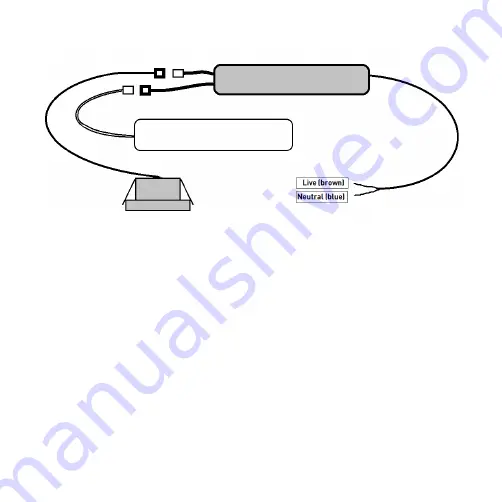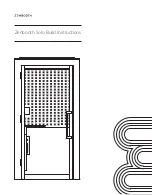
INSTALLATION & MAINTENANCE MANUAL
These instructions should be read carefully and retained after installation by the end user for future reference
and maintenance.
These instructions should be used to aid installation of the following product:
EMPOWER3
SAFETY
•
This product must be installed in accordance with the latest edition of the IEE Wiring Regulations
(BS7671) and current Building Regulations. If in any doubt, consult a qualified electrician
•
Please isolate mains prior to installation or maintenance
•
Check the total load on the circuit (including when this luminaire is fitted) does not exceed the rating of
the circuit cable, fuse or circuit breaker
•
Please note the IP (Ingress Protection) rating of this luminaire when deciding the location for
installation
•
Allow 50mm above and around the fitting for air dissipation (do not cover the fitting with insulation)
•
This product is Class II double insulated
•
This product is IP20 rated
INSTALLATION
•
Provide power to the required point of installation
•
Cut a suitable hole in the mounting surface as per the cut-out details (see Fig. 1) ensuring not to
infringe with any joists, gas/water pipes or electrical cables
Fig. 1
•
Connect the luminaire to the mains supply via a suitable junction box ensuring that correct polarity is
observed: Live (brown) and Neutral (blue) (see Fig. 2)
Fig. 2
•
Connect the battery to the inverter via the plug and socket provided, ensuring that correct polarity is
observed
• Connect the battery to the inverter via the plug and socket provided, ensuring correct
polarity is observed
• Connect the downlight to the inverter via the plug and socket provided
• Change the bezel, if required, by unscrewing from the downlight and replacing with the
required bezel
• Place the inverter and battery into the ceiling via the cut-out
• Lift both spring clips on the sides of the fitting and push into the ceiling
• Switch on and check for correct operation, ensuring the green indicator LED is illuminated
• We recommend, on commissioning the installation, a minimum charge period of 24 hours
before carrying out an emergency duration test
Fig. 2


























